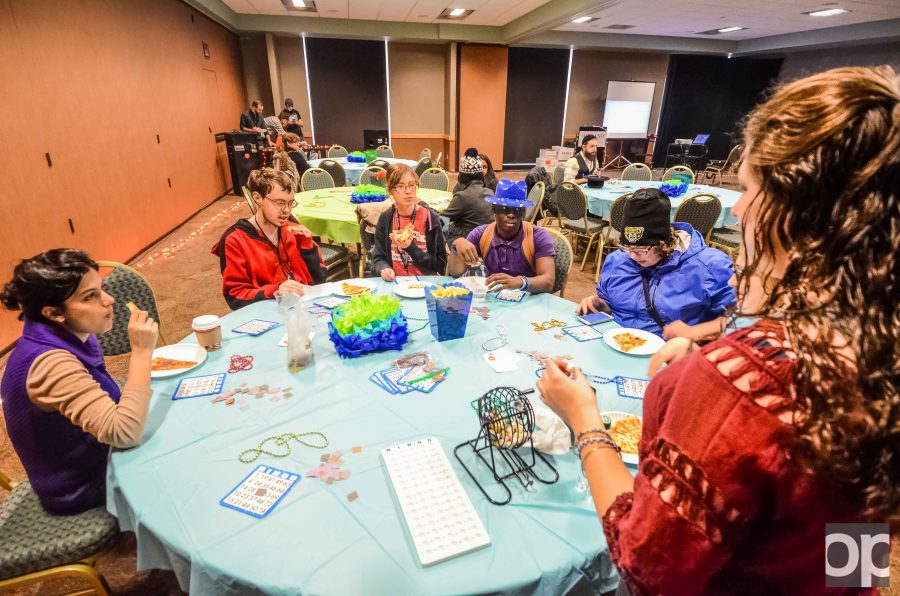Anti-Bullying Awareness Day brings students together to end bullying
OU promotes an end to bullying through Anti-Bullying Awareness Day.
Attendees at the Anti-Bullying Awareness Day event played games such as Bingo, jeopardy, and hacky sack.
Bullying is an issue on college campuses, and it can affect people physically and emotionally.
Oakland University student organizations Hillel of Metro Detroit, Jewish Student Organization, Students for Israel, OU Catholic Student Society, Students Toward Understanding Disabilities and the Center for Religious Understanding came together to sponsor Anti-Bullying Awareness Day. The event took place on Nov. 28 in Gold Rooms A and B in the Oakland Center.
The rooms were decorated with Christmas lights and colorful tablecloths. The organizations provided pizza, drinks and games, such as Jeopardy, BINGO, Apples to Apples and Bean Bag Tic Tac Toe Toss. The event maintained an upbeat atmosphere with the help of WXOU.
Junior, journalism major and president of the Jewish Student Organization Dovid Roetter shared his viewpoint on the event.
Roetter said he anticipated the event to be enjoyable and informative for students. He hoped that working as teams while playing games would be an amusing way to bond with peers and to compete with one another.
Preparations for this year’s Anti-Bullying Awareness began in August. For the past two years, Roetter hosted the event at Oakland Community College. He brought it to OU this year.
“I reached out to a bunch of organizations to see who wants to co-host,” Roetter said. “We all worked together to make this event a reality.”
Roetter encourages students to speak out and utilize the gift of having a voice.
“It’s your job to use that voice for the right things,” he said. “We are given teeth and a mouth to guard ourselves from speaking evil and negativity.”
He continued, saying that people should approach victimized friends.
“If you really care about the person, you should stand up,” Roetter said. “If you don’t feel comfortable confronting the person, we have hotlines for people to call. However little you might help, you never know where it will go.”
Victims often think that speaking up will make the situation worse. However, Roetter explained that there is no chance of the situation getting better unless you step up.
“Bullies tend to pick on someone more once [the victim] tattletales,” he said. “Bullies can be stopped by the higher authorities that can do something about it.”
Roetter mentioned that minorities are common targets for bullies.
“They are already looked down upon by society, and they’re easy targets [because they’re] different,” he said. “We can utilize those differences to make them feel better about themselves. People won’t look at them [bullies] weird for picking on a minority because it’s common.”
He said he hopes students who attended Anti-Bullying Awareness can accept each other’s differences.
Freshman political science and history major, Elijah Sanders, shared his experience of being bullied.
“It’s torturous,” Sanders said. “I went through some very dark depression because of it, and I still do. Most days I try to ignore and get over it.”
When helping others who are experiencing bullying, Sanders tells his story and asks about theirs.
“There’s a support system where someone understands,” Sanders said. “I think the best way is to tell stories and to let people know they’re not alone. The struggle never ends.”







